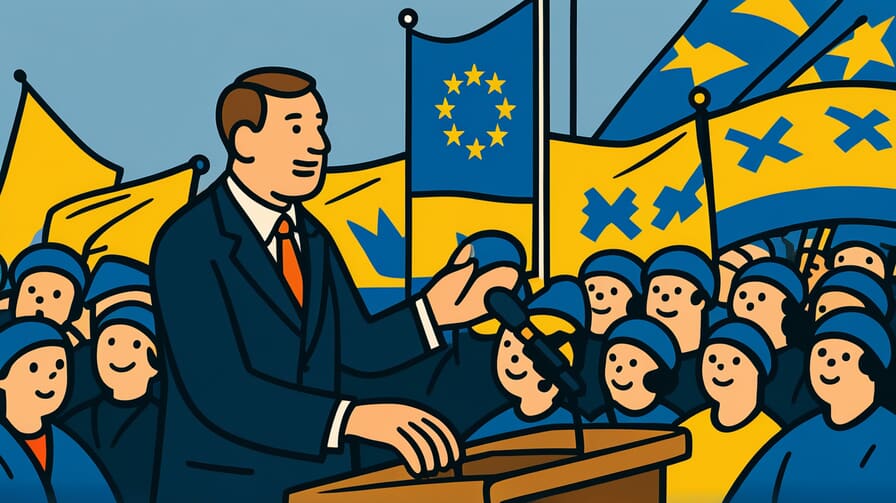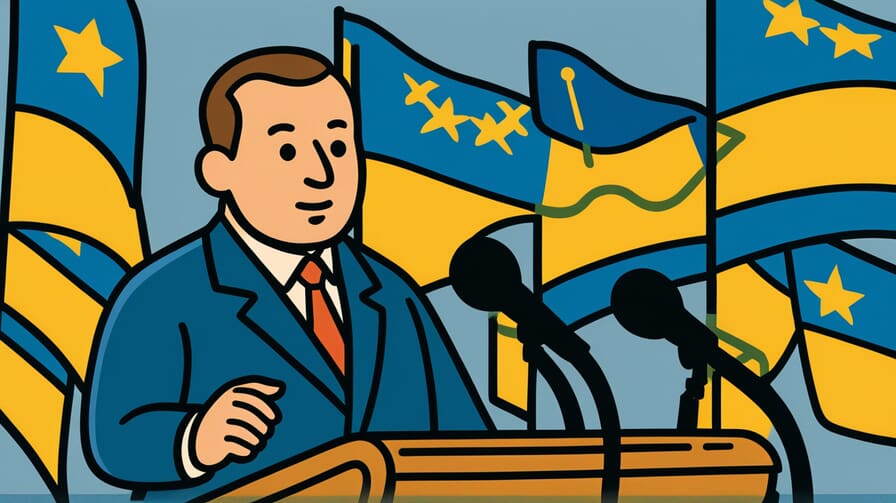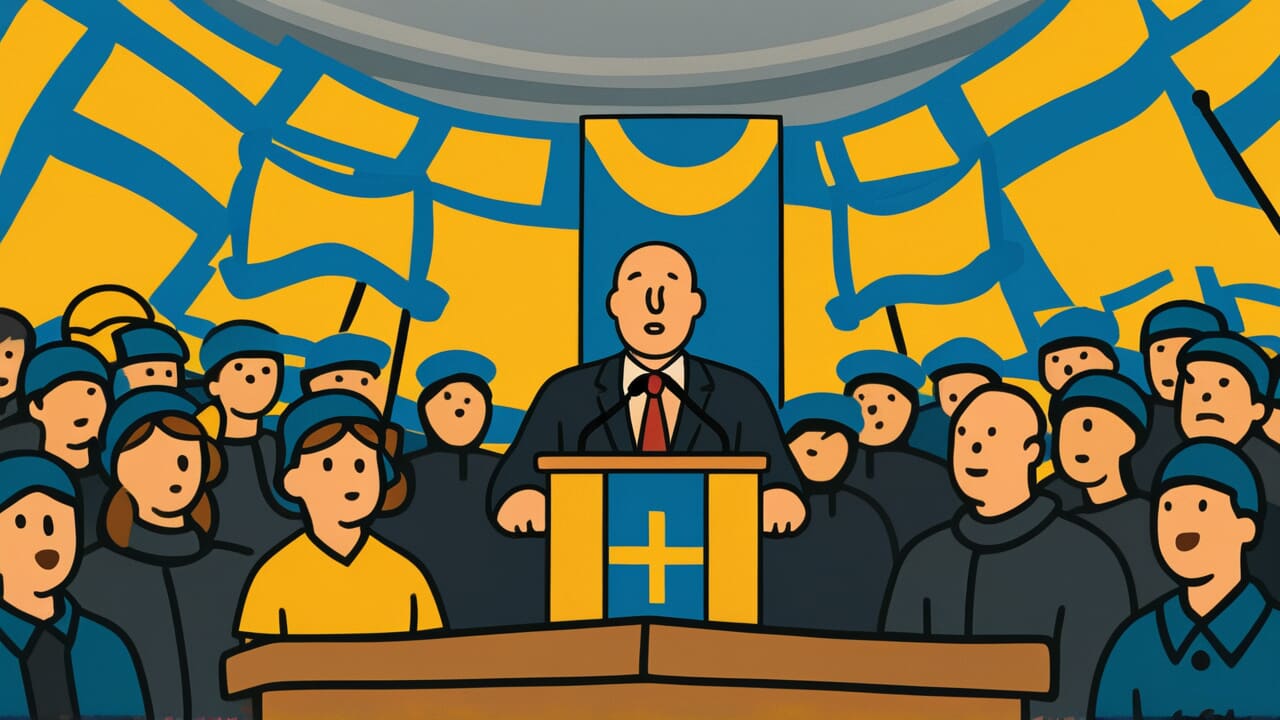[Disclaimer] This article is reconstructed based on information from external sources. Please verify the original source before referring to this content.
News Summary
The following content was published online. A translated summary is presented below. See the source for details.
European Commissioner for Defence and Space Andrius Kubilius delivered a speech at a celebration of Ukrainian Flag Day in Brussels on August 23, 2025. Kubilius emphasized the significance of the Ukrainian flag as a symbol of resilience and freedom. He shared his personal connection to the flag, recalling its importance during Lithuania’s struggle for independence. The Commissioner reaffirmed the European Commission’s unwavering support for Ukraine, highlighting the ongoing €50 billion Ukraine Facility and recent €2.3 billion investment package. Kubilius addressed the current situation in Ukraine, acknowledging the continued conflict and recent Russian strikes. Despite challenges, he expressed optimism about Ukraine’s future EU membership, noting progress in accession negotiations that began in June 2024. The speech underscored the EU’s commitment to Ukraine’s sovereignty, recovery, and European integration.
Source: European Commission Press Corner
Our Commentary
Background and Context

Commissioner Kubilius’ speech comes at a critical juncture in EU-Ukraine relations. The celebration of Ukrainian Flag Day in Brussels symbolizes the deepening ties between Ukraine and the European Union. This event takes place against the backdrop of ongoing Russian aggression and Ukraine’s arduous journey towards EU membership. The speech reflects the EU’s strategic commitment to supporting Ukraine’s sovereignty, recovery, and European integration aspirations.
Expert Analysis
Kubilius’ address underscores the EU’s multifaceted approach to supporting Ukraine. The mention of the €50 billion Ukraine Facility and the recent €2.3 billion investment package demonstrates the EU’s substantial financial commitment. However, the speech also acknowledges the complex challenges Ukraine faces, including the ongoing conflict and the intricate process of EU accession.
Key points:
- The EU’s financial support is significant but faces the challenge of effectively aiding Ukraine amid an active conflict.
- Ukraine’s EU membership process is progressing, with accession negotiations having begun in June 2024, but faces political and technical hurdles.
- The ongoing conflict, including recent Russian strikes, continues to pose significant challenges to Ukraine’s recovery and EU integration efforts.
Additional Data and Fact Reinforcement
Recent developments and statistics underscore the complex situation in Ukraine:
- The EU has provided over $92 billion in various forms of aid to Ukraine since 2022, with $8.7 billion allocated in 2025 alone.
- Ukraine was granted EU candidate status on June 23, 2022, with accession negotiations officially beginning on June 25, 2024.
- Russia launched its third largest strike of the war on August 20-21, 2025, targeting western Ukraine and causing significant civilian infrastructure damage.
Related News
The speech coincides with other significant developments in EU-Ukraine relations. On June 30, 2025, an agreement in principle was reached to modernize the EU-Ukraine Deep and Comprehensive Free Trade Area (DCFTA), aiming to further integrate Ukraine into the EU Single Market. Additionally, a summit in mid-August 2025 involving European leaders, Ukrainian President Zelenskyy, and former U.S. President Trump explored potential security guarantees for Ukraine.
Summary

Commissioner Kubilius’ speech reflects the EU’s steadfast support for Ukraine in the face of ongoing challenges. While significant progress has been made in EU-Ukraine relations, including the start of accession negotiations and substantial financial aid, the path forward remains complex. The EU’s commitment to Ukraine’s sovereignty, recovery, and European integration continues to be a crucial factor in the region’s geopolitical landscape.


